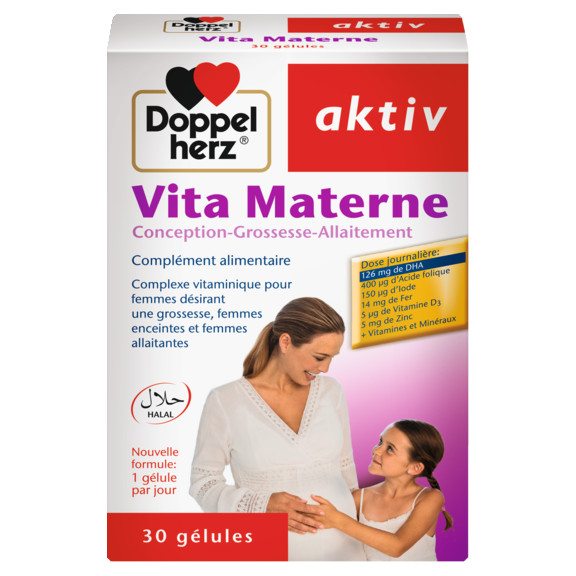Relaxation right from the outset of the pregnancy
Listen to your body and allow yourself to take time out if you feel weak or sluggish. Be sure to get enough sleep during your pregnancy. A short nap from time to time will do you good if you can fit it into your schedule.
In case of agitation and restlessness, a relaxing bubble bath can work wonders (but not too hot please!).
Taking childbirth classes is also helpful because a great deal of useful knowledge is exchanged in the group and it will help prepare you for the birth. Moreover, the women are “all in the same boat” and can support one another in cases of concern or with questions!
Take advantage of the free-of-charge examinations for the care of pregnant women. A good check-up provides security and reassures!
Take care of your body. As a result of the hormonal changes, your skin demands more moisture. Apply cream whenever your skin becomes taught.

Sports during pregnancy
Participating in sports during pregnancy keeps you fit, stimulates the circulation and strengthens your muscles. When mothers-to-be remain active, they generally suffer less from back pain and exhaustion. Sports which require little balance and move large muscle groups are particularly beneficial.
Check your pulse when engaging in sports. The ideal heart rate is 130 beats per minute. Be sure that you can still speak easily at all times.
Open-air sport is like an oxygen shower for mum and baby. Anyone who practices Nordic walking uses approximately 90% of the muscles in the body. Moreover using the poles encourages upright walking and takes some of the load off of the back.
Gymnastics are an excellent choice for pregnant women: it develops the abdominal muscles, keeps the spine flexible and strengthens the legs, which now have to carry considerably more weight then they have been accustomed to.
Cycling is also ideal for pregnant women, because the body weight strains neither the bones nor the joints.
Water is the ideal element for pregnant women. Even with a belly as round as a melon, you can still go swimming or do water aerobics. The buoyant force of the water reduces the load imparted by the unaccustomed weight and is a wonderful way to relax the backbone and legs.
Twice as good instead of twice as much!
They used to say that pregnant women had to eat for two. That’s not true, however, if it means eating literally twice the quantity. What is true is that from now on you must be sure to eat well. Because everything you eat passes through the umbilical cord to your child.
Pregnant women do not need additional energy for the baby until about the fourth month. And even then, they only need about ten percent more than before (around 250 calories). That corresponds to an apple and a small cheese sandwich, for example.
Try not to gain too much weight during your pregnancy. Putting on ten to twelve kilograms is considered normal, however.
Be sure to eat a healthy combination of carbohydrates, proteins and fats. The share of proteins should be about 10%, the recommended share of fats is around 35%, and the remaining 55% should comprise carbohydrates.
Folic acid– The "pregnancy vitamin"
When it comes to the subject of pregnancy, folic acid is certainly the best-known vitamin. Folic acid (folate) is a water-soluble vitamin of the vitamin B group, which is indispensable for all growth and development processes.
Folic acid promotes normal cell division and maternal tissue growth during pregnancy. It also helps to ensure that your baby has access to enough “material” in order to build up new cells. This is especially the case during pregnancy, of course, where a few cells at the start of the pregnancy develop into a person with about 100 billion cells!
Hence folic acid is also important for neural tube closure and therefore for a positive course of pregnancy.

As the closure of the neural tube already occurs at the start of the pregnancy – which is to say, at a point in time when women are often unaware of their pregnancy – women should already start thinking about an adequate supply of folic acid once they decide they would like to have a child, and before they actually become pregnant.
Foods which contain folic acid include green vegetables such as broccoli, Brussels sprouts and savoy cabbage.
The Consumption Survey (2008) indicates that about 78% of all women in Germany between the ages of 19 and 50 do not receive the recommended daily allowance of folic acid (400 µg). Additional folic acid is needed right from the onset of the pregnancy.
Important omega-3 fatty acids: DHA + EPA
Together with vitamins and minerals, omega-3 fatty acids are part of proper, healthy nutrition during pregnancy and lactation.
Foods which are rich in omega-3 fatty acids include cold water fish such as salmon and tuna as well as shellfish.
Depending on the chemical structure, fats can generally be classified as saturated, monounsaturated or polyunsaturated fatty acids. The polyunsaturated omega-3 fatty acids are considered especially valuable – above all eicosapentaenoic acid (EPA) and docosahexaenoic acid (DHA).
Given the wide variety of functions of EPA and DHA, it comes as no surprise that they are especially important during pregnancy. The mother sends the omega-3 fatty acids which she receives in her food directly to the unborn baby through the umbilical cord.
One of the roles of EPA is to support the normal heart function of the mother.
DHA is the component which is required for the normal, healthy development of the brain and the eyes. While a baby grows in the womb, the brain develops faster than it ever will again. The highest concentrations of DHA are located in the metabolically active areas of the brain such as the cerebral cortex, mitochondria and synapses. So it only stands to reason that DHA is also known as the fatty acid of the brain.
That’s why pregnant women should receive at least 200 mg per day of DHA.
Iron – Twice as much required during pregnancy!
Iron is a vital trace element which must be received every day in the food we eat. It contributes to the normal formation of red blood cells and haemoglobin.
Due to their monthly period, women need 15 mg more iron per day than men do.
During pregnancy, iron plays another indispensable role because blood must also flow to the growing uterus.
A woman who weighs 60 kg has about 5 litres of blood in her blood vessels – during pregnancy that volume of blood increases to about 6 to 6.5 litres. In order to produce this additional amount, the body now needs between 20 and 30 mg of iron.
An adequate supply of iron to the mother is also important during lactation, because with a 100% nursing mother, the baby receives all of its iron via the breast milk only. Breastfeeding mothers should receive about 20 mg of iron daily.
